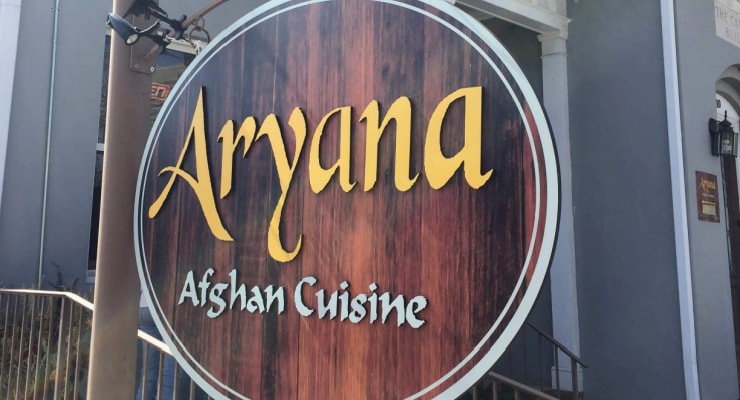The case for 'Afghanese'
Why this lesser used demonym should become standard in English

In its most original form, an 'Afghan' referred to a Pashtun/Pathan person, an ethnicity that natively live in what is now the border region of Afghanistan and Pakistan. Their native area was split after the joint Afghan-British demarcation agreement, with many of the people permanently residing on the southern side within the British territory of India. With Pashtuns no longer a majority in Afghanistan (although still a plurality), the term eventually evolved into the modern day nationality, which includes people of various other ethnicities. Since 1947, those south of the border have been living under the entirely new state of Pakistan.
 |
| This is what Afghani is, a currency! |
The -i suffix
The problem is more complicated than it sounds. Those familiar with Afghanistan may comment that they have indeed heard the term 'Afghani' being used by their people not in relation to the currency. The fact is that 'Afghani' is a valid demonym in Dari (Persian), one of the country's two main languages. In Dari, when someone describes something from Afghanistan, they use this term - for instance, 'Afghan bread' would be called 'Nan-e Afghani', with the -i suffix. But confusingly, the suffix is not used when describing a person. A person from Afghanistan would be called an 'Afghan', not an 'Afghani', in Dari or the other varieties of Persian.
The -i suffix is prevalent in numerous Indo-Persian languages. People in Pakistan and northern India, whether speaking Hindustani or Punjabi (notice that they both also have the suffix), also use 'Afghani' as a demonym for Afghanistan. Their usage is correct, in their native language.
So why do we in English use the term without the suffix? Because in English we adopted the demonym from Pashto, Afghanistan's other main language. In Pashto, the native language of the Pashtuns (i.e., the original term for 'Afghan' and 'Afghanistan'), the demonym is simply 'Afghan'. English could have used 'Afghani' just as they had adopted the suffix from the likes of 'Punjabi', 'Bangladeshi' etc. But because it was adopted from Pashto instead of Dari, it did not have the suffix. So, officially, in English, we just say 'Afghan' as that became the accepted term during its 19th century British protectorate time.
To make things more complicated, the -i suffix is used in, for example, 'Pakistani', the demonym of Afghanistan's neighboring country. In this case, the full name of the country is used with the suffix. If we were to use the method of the English demonym of Afghanistan, 'Pakistani' would instead be 'Pak', a term that is not used. Likewise, if we were to use the method used for Pakistan, 'Afghan' would become 'Afghanistani', again a term that is very seldom, if ever, used. And to top things off, 'Afghani' is the name of Afghanistan's currency, which creates yet another layer of complication. All of these factors have contributed to this mess we have in the English language regarding Afghanistan. Case in point: in Fremont there were two restaurants serving Afghan food close by each other - one had the words 'Afghan restaurant' on it, the other had 'Afghani restaurant' on it. This is not acceptable.
The anglicized alternative
So how do we solve this? Well it turns out, it's very easy to. Neither 'Afghan' nor 'Afghani' are anglicized, as they are both direct transliterations of the demonyms in their native languages. Creating an anglicized term is neutral, while also not causing any confusion regarding the currency. A term like 'Punjabi' doesn't necessarily need the anglicization into e.g. 'Punjabese', because it serves its purpose in English well - there are no clashes. 'Nepalese' is an anglicized alternative for the native 'Nepali'. But 'Afghan' doesn't have a widely used anglicized term, which is precisely what we need to have to solve this problem.
Enter 'Afghanese'. This is an anglicized alternative with the -ese suffix. Records show that this term has indeed been used by some, although very seldom compared to 'Afghan' or 'Afghani'. 'Afghanese' is a little known alternative demonym. But I believe this is the demonym that should become standard. It eliminates the mess caused between 'Afghan' and 'Afghani', their origins, and the currency.
'Afghanese' is the perfect anglicized term - it certainly rolls of the tongue easily, more so than an anglicized term like 'Afghanian'. We can see that 'Afghan' ends in a letter 'n', and the most natural suffix for that would be 'ese', as we can see in e.g. 'Japanese' or 'Lebanese'.
I hope this post spreads awareness among linguists and others, including Afghan (or shall I say Afghanese) people. There is a serious issue in English regarding Afghanistan, but this post describes the valid lingual solution. My wish is for 'Afghanese' to one day be adopted as the standard demonym in English. Considering the amount of changing definitions we've seen in the 20th century, I certainly believe this is possible. Of course, it won't happen any time soon, as it will take time until it receives awareness, let alone widespread usage. But this would be a good starting point to make a change in how we refer to Afghanistan and everything Afghanese!
 |
| From now on, I will call this Afghanese food |


Comments
Post a Comment